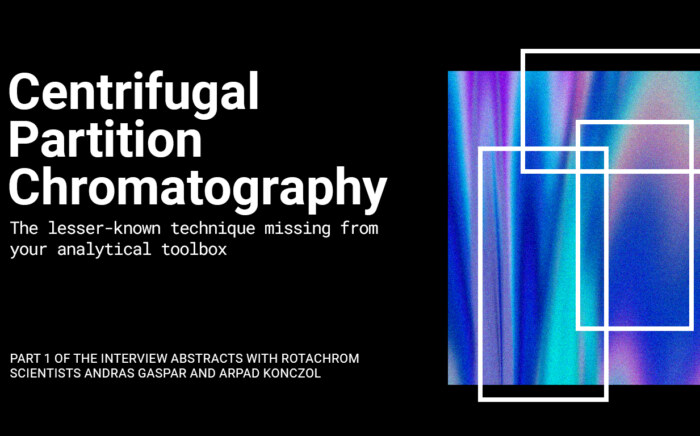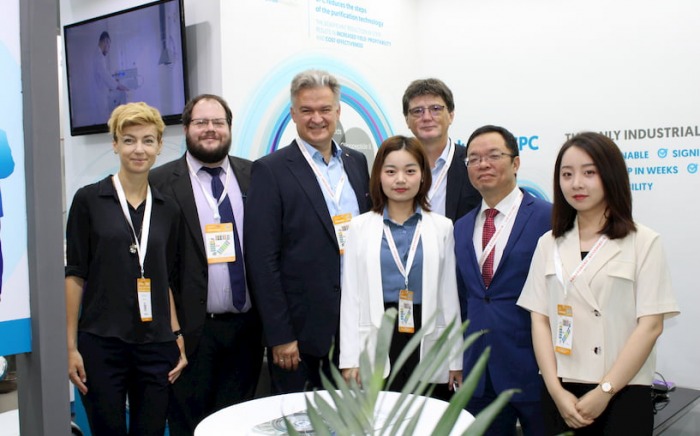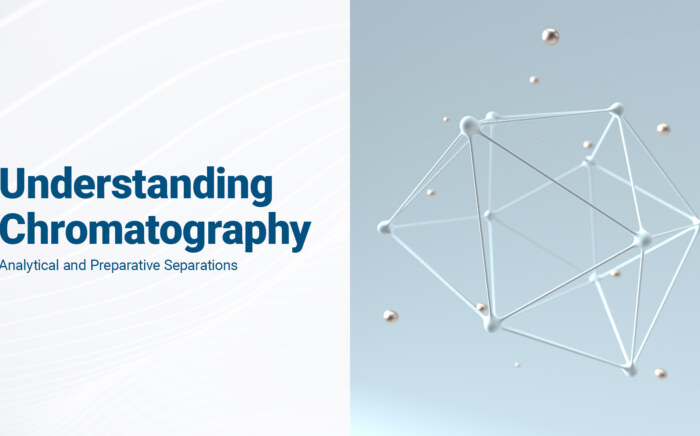Increasing separation efficiency by pH adjustment in Centrifugal Partition Chromatography
NewsPreparative-scale liquid chromatography has long been a stalwart in the chemical industry for purification processes. However, the environmental toll of substantial solvent consumption and solid waste from spent silica gel packing has prompted a shift towards sustainable alternatives. This blog post explores the green potential of hydrostatic countercurrent chromatography, commonly known as centrifugal partition chromatography (CPC), and its ability to revolutionize chemical separation workflows.
The Sustainable Promise of CPC
Centrifugal partition chromatography (CPC) emerges as a green alternative to traditional methods, offering a more sustainable approach to chemical purification. By utilizing liquid phases for both stationary and mobile components, CPC presents a compelling solution to the challenges posed by solid-based systems.
CPC Operation Basics
Distinguishing itself from traditional solid-liquid chromatography, CPC employs liquid phases for both stationary and mobile components. The centrifugal force immobilizes the liquid stationary phase, while the mobile phase is actively pumped through, allowing for efficient partitioning of solutes. This unique mechanism influences purification by regulating the duration spent in the stationary phase, impacting solute retention.
Advantages Over Solid-Based Systems
CPC introduces significant cost advantages by eliminating the need for silica gel and reducing solvent requirements. Traditional chromatography using solid silica-based packing gels poses limitations in stationary phase options and generates substantial waste. In contrast, CPC allows for a broader range of liquid-liquid systems as stationary phases, enhancing flexibility and efficiency.
Green Solvents and Sustainability
CPC aligns with sustainability goals by promoting the use of eco-friendly, renewable solvents. This shift to greener alternatives not only diminishes the ecological footprint associated with chromatographic processes but also complies with evolving regulations restricting hazardous solvents. CPC stands as a more sustainable choice, addressing economic and environmental challenges in chemical separation workflows.
Choosing Eco-Friendly Solvents
Selecting the right biphasic system in CPC involves considerations of solvent properties such as hazardousness, toxicity, and recyclability. Ideal solvents for CPC exhibit low viscosity, UV transparency, a broad polarity range, and strong interfacial tension between aqueous and organic phases. Green solvents like 2-Methyl-Tetrahydrofuran, Limonene, Cyclopentyl methyl ether, and Water are replacing traditional options, aligning with sustainability criteria.
Exploring Deep Eutectic Solvents (DES)
Deep eutectic solvents, particularly those formed from natural-origin components (NaDES), are gaining attention. These solvents, known for their freezing point depression and created from safe, renewable, and biodegradable components, show promise as an alternative to water-based solvent systems. NaDES provides a suitable polarity range for separating less polar and hydrophobic compounds, furthering the green revolution in CPC.
Conclusion
Centrifugal partition chromatography (CPC) is at the forefront of the green revolution in chemical purification. Its sustainable approach, utilization of liquid phases, and compatibility with eco-friendly solvents position CPC as a pioneering technology in achieving both environmental and economic goals in the chemical industry. Stay tuned for deeper insights into the sustainable future of chemical purification through CPC.



